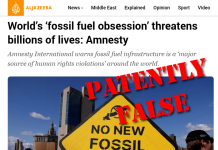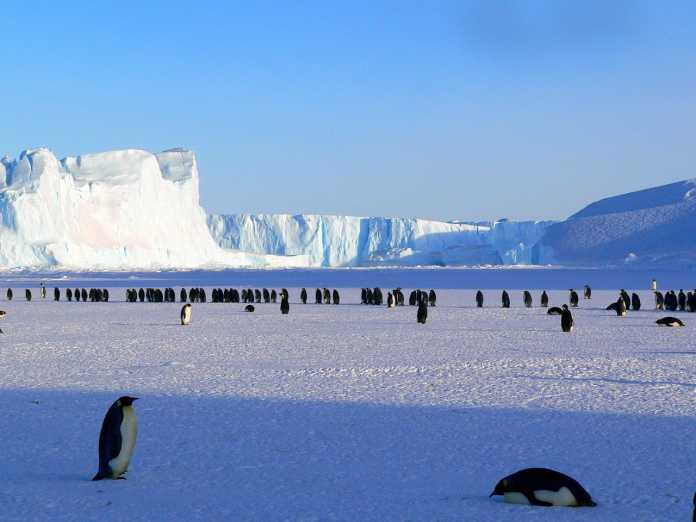Sound science dies in darkness. The Washington Post is freaking out over a report that one glacier in Antarctica has lost, during the past 20 years – wait for it – less than 1/20th of 1 percent of its ice. Extrapolating hundreds of centuries into the future, the Post warns that sea level could rise 5 feet “in the long term” if all the ice were to melt.
In a March 23 article titled, “Scientists just discovered a massive new vulnerability in the Antarctic ice sheet,” the Post notes that the Denman glacier “already has lost over 250 billion tons of ice, researchers have calculated, equivalent to a little over half a millimeter of sea level rise.” Half a millimeter is essentially nothing, but 250 billion tons of ice sounds immense. That is, until we consider that the Denman glacier holds 540 trillion tons of ice. 250 billion tons of ice is less than 1/20th of 1 percent of 540 trillion tons of ice. In other words, during the past 20 years, the Denman glacier lost just 1 part per 2,160 of its mass.
How does the Post describe such miniscule overall ice loss to sound alarming? Try this: “[T]here are 540 trillion tons of ice loss potential if the glacier were to travel backward across the entire subterranean canyon,” the Post ominously warned.
Well, yeah, and at a pace of less than 1/20th of 1 percent ice loss per 20 years, that 540 trillion tons of ice wouldn’t melt until 43,200 years from now.
That’s like watching a child bring home a spoonful of sand from the beach and then warning that there are 540 trillion tons of potential sand loss if every person on the Earth did the same thing every day for the next 43,000 years.
Assuming humans still populate the Earth in 43,000 years, that for some unknown reason the overdue next ice age glaciation doesn’t kick in before then, and that we still utilize coal-fired power plants then, we sure are facing an onrushing climate crisis 43,000 years from now.
Thank you, Washington Post, for sounding the alarm. Thank you, Google News, for putting this ridiculous article at the top of today’s search results for “climate change.” No wonder people object to paying even $10 per month for climate change programs.
























James,
You are dead right to put the actual amount of ice loss in perspective. The “warmers” always quote the ice loss in tonnes, thousand tonnes etc., to make the numbers sound enormous. When considered as a proportion of or a % of the total actual, the amount is very small indeed.
However most of the uninitiated look a the very large figures and freak out unnecessarily.
Cheers,
‘
Jock
Love your work. Thanks
Good for you, James Taylor.
James et. al.
You’ve likely seen this.
If not, here are some great visual aids to support your argument.
https://wattsupwiththat.com/2020/03/22/graphing-the-icy-reality/
B.